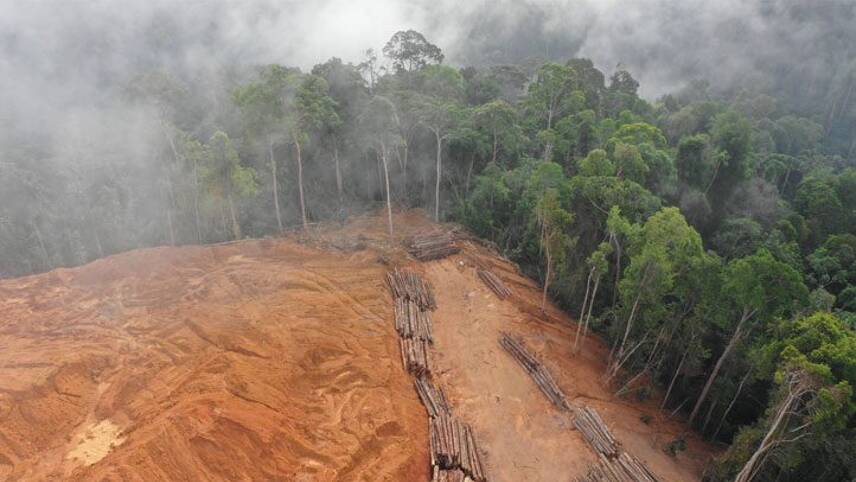Register for free and continue reading
Join our growing army of changemakers and get unlimited access to our premium content

Banks and investors have been quicker to divest from coal than deforesters
That is according to a new analysis from non-profit Global Canopy. The organisation’s new Forest 500 report, published today (26 January), analyses the portfolio holdings and governance commitments of 150 banks and investors across the world to assess how they are contributing to forest loss.
The report reveals that around two-thirds of these businesses do not have any public commitments around denying finance to firms accused of deforestation or attaching conditions to financial packages in this instance.
Global Canopy wants to see more banks and investors developing specific policies for investments in sectors with high deforestation risk, such as palm oil, soy, beef, leather, timber, pulp and paper. It cites its own previous research of 350 companies producing or sourcing these raw materials, which found that less than one-third have made no public commitments to avoiding deforestation. Moreover, less than one-quarter have made commitments covering all commodities they deal in. Laggards in this space include Capri Holdings, the parent company of Jimmy Choo and Versace; French dairy giant Groupe Lactalis; the world’s largest shoemaker, Bata; Dunkin Donuts’ parent firm Dunkin’ Brands; Kraft Heinz and Starbucks.
Considering this lack of ambition in the public sector, as well as the size of the banks and investors and the companies they hold in their portfolios, Global Canopy estimates that up to $2.7trn has been invested in activities that could be linked to deforestation.
The top financiers of companies which, according to Global Canopy, are high forest risk, are Vanguard, BlackRock, State Street, Capital Group and Wells Fargo. Performance in terms of governance was generally worse in the US market, but the report found that many European organisations with deforestation policies are still financing high-risk companies, including Santander and Deutsche Bank.
“There is no solution to climate change without a solution to deforestation, yet a great majority of the world’s largest financial institutions are looking the other way on this vital issue,” Global Canopy’s executive director Niki Mardas said.
“Some are making big announcements on climate change while failing even to have a deforestation policy in place. This doesn’t add up, and it sends a terrible message to the market. Strong policies are a basic first step, setting clear expectations for the companies they finance, and demonstrating a strategic approach to the climate and nature crisis.”
Policy changes
“Emerging due diligence legislation will favour early movers and must include the finance sector in its remit, with sanctions for those who fail to act,” Mardas continued.
To this point, the UK Government has added clauses to the Environment Bill designed to ban UK-based business from importing from suppliers that deforest overseas. All large, UK-based businesses will need to prove that the ‘forest risk’ commodities they source internationally come from deforestation-free suppliers – or explain why they are unable to do so. Defra classes soy, palm oil, cocoa, beef, leather, rubber and forest products like wood and paper as ‘forest risk’ commodities.
NGOs including Global Witness are calling on Ministers to do more to stop UK-based banks and investors from financing deforestation as part of this crackdown. Big businesses including Nestle and Tesco have also argued that the UK can do better than taking a ‘tick-box’ approach; the current proposals only ban illegal deforestation, and some nations have lax rules in this space.
The Environment Bill is due back in Parliament for the first time in 2021 later this week.
Sarah George


Please login or Register to leave a comment.